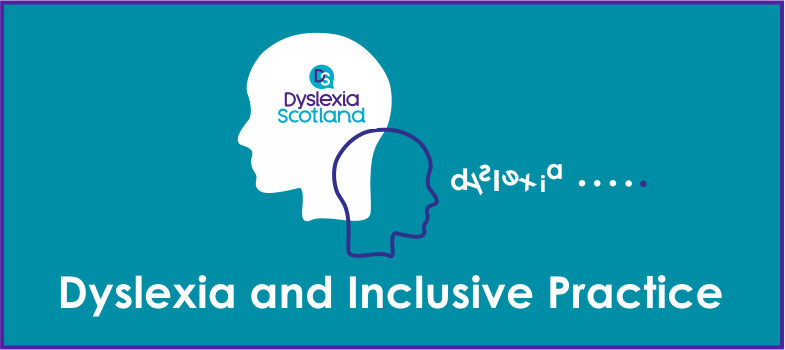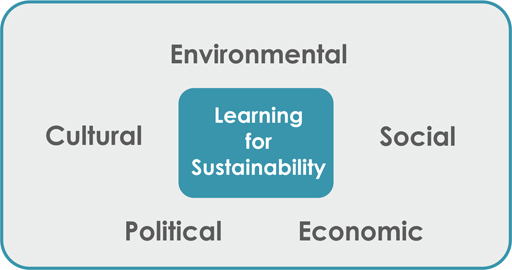6 Learning for sustainability
Introduction
What is Learning for sustainability?
Learning for sustainability represents how a practitioner connects their knowledge and understanding of their learners with the areas highlighted in figure 24. Learning for Sustainability, internationally known as Education for Sustainable Development (ESD), has its roots in the Earth Summit, the UN Conference on Environment and Development, held in Rio de Janiero in 1992.
‘Learning for Sustainability is learning to live within the environmental limits of our planet and to build a just, equitable and peaceful society. It is essential for the well-being of all and is an international priority’.
The professional actions, values, skills and knowledge of Learning for Sustainability are embedded within the Standards for Registration, Career-Long Professional Learning and Leadership and Management, recognising that all teachers should be confident in their knowledge and understating of the challenges facing society locally and globally. More information on this is on the GTCS Learning for Sustainability webpage. [Tip: hold Ctrl and click a link to open it in a new tab. (Hide tip)]
Scotland’s inclusive education system and flexible curriculum framework highly values teacher professionalism. The 2012 suite of Professional Standards accredited by the General Teaching Council for Scotland is one example of the investment which continues to be made with the aim of supporting and building teachers’ skills and capabilities. Education Scotland also provide a range of free professional learning opportunities which support and link with the GTCS standards for professional learning.
The standards for initial teacher education and registration, career-long professional learning and leadership are all underpinned by a set of values aligned to social justice and commitment to inclusive education. For example, expectations related to the inclusive values and attitudes include that teachers can:
- demonstrate an understanding of principles of equality of opportunity and social justice and of the need for anti-discriminatory practices.
- demonstrate respect for the rights of all children and young people without discrimination as defined in the United Nations Convention on the Rights of the Child 1991, the Children (Scotland) Act 1995, the Standards in Scotland’s Schools Act etc 2000 and the Education (Additional Support for Learning) (Scotland) Act 2004.
- demonstrate that they value and promote fairness and justice and adopt anti-discriminatory practices in respect of gender, sexual orientation, race, disability, age, religion, culture and socio-economic background. (TE4I pp4-5)
The GTCS standards for registration of states that all teachers have to:
Commit to the principles of democracy and social justice through fair, transparent, inclusive and sustainable policies and practices in relation to: age, disability, gender and gender identity, race, ethnicity, religion and belief and sexual orientation. These standards are clear and set in the context of equity and social justice.

